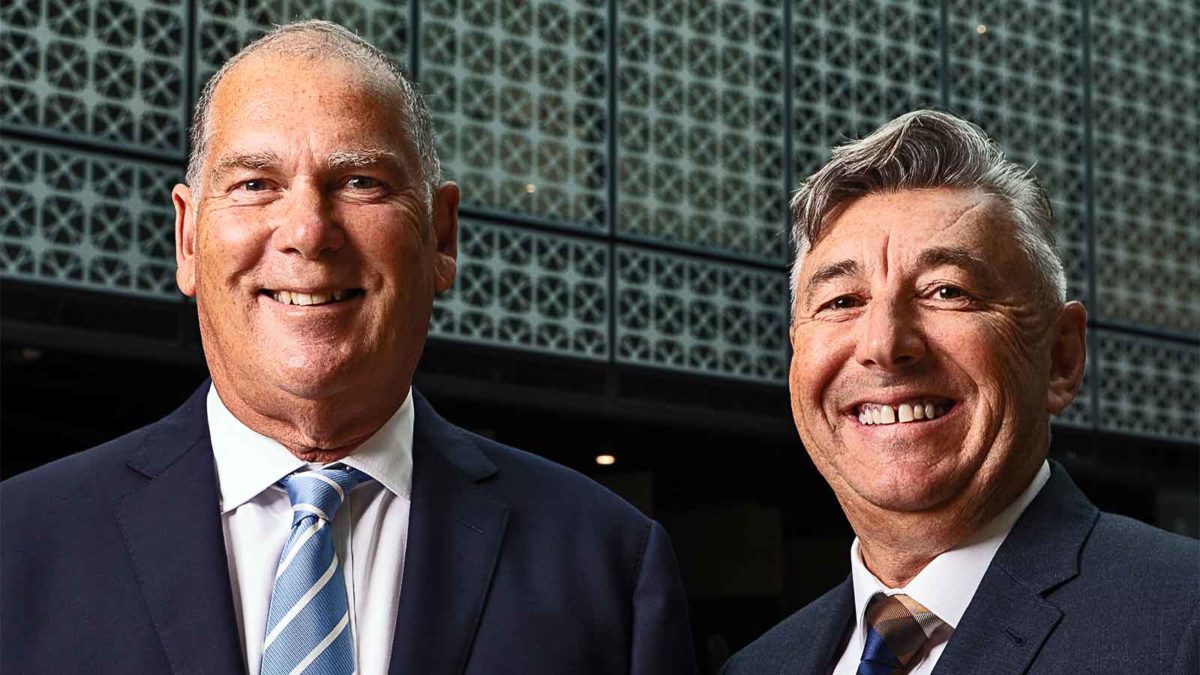Funds coming to grips with digital advice
Super funds have battled with providing financial advice for decades but have not yet found a solution that can make it affordable and efficient for millions of low-balance members.
Digital advice – including ‘robo’ – which in theory solves the affordable problem, has also been a decades-long dream for Australian wealth management, a revolution in the way we do things that has still not quite arrived.
Financial advisers dislike it, and few pure-play providers have had success rolling it out in what has historically been a highly concentrated space. But, post Royal Commission, providing digital financial advice is a “natural play” for profit-to-member funds, according to Mike Giles, Ignition Advice chief executive and co-founder.
“They’re such perfect candidates for scaling digital advice,” he says. “The average industry fund has one adviser for every 100,000 members. They’ve all got some level of comprehensive advice, but they’ve been skirting it and flirting with it and not really embracing it,” Giles said. “It’s one of those areas where they’ve got a great mandate, but the trustees of those businesses have always been extremely cautious.”
The concept of digital advice engenders extreme consternation from some corners of the advice industry. They view it as a pale shadow of a full-service proposition that they offer and believe is necessary for the financial wellbeing of Australia’s aging population. While Giles admits that digital advice isn’t full service advice and never can be, he also doesn’t think that’s the point.
He says: “They need to start small and work out the most valuable areas where they can guide members and realise that digital isn’t a 100 per cent solution, but that it’s a great solution for the mass side of their retail books.”
Ignition provides digital advice solutions to global institutional clients, but its conversations with Australia’s super funds have been slow despite a broad understanding that financial literacy is extremely low among their members. Those members are predominantly young, with small balances, and any conversation with an adviser would have to be “massively subsidized”. Funds have mostly tried to solve that problem through communication with members – the use of ‘The New Daily’ was nominally to help in that purpose – but Giles believes that “when literacy is low, people actually want direction – i.e. advice”.
He says: “The focus has been on help and education, and the advice word is still an area where they’re very slow to play even though now more than ever the market wants them to. They’ve got the mandate… It’s a daunting model when you think of advice as comprehensive and you’re not getting down to single-issue areas. They’ve got to be a bit more bold.”
A recent ASIC consultation revealed that there is “very little appetite” for providing digital advice among financial advisers, for precisely the reason that some of its proponents argue it’s the perfect fit for super funds: it’s only suited to the simple advice needs of younger people, and is only viable at scale.
Digital solutions are now being pursued by some of Australia’s largest wealth managers. Former AMP CEO Francesco De Ferrari recently flagged that the company would be pursuing more “episodic” advice, focused on important events in the customer’s life, such as when they get married or decide to buy a house, with other needs met through “omni-channel” advice delivered through digital solutions or via telephone.
But the regulatory hurdles remain significant. Even pure-play advice businesses are wrapped up in red tape, and Ignition has enjoyed more success overseas, particularly in the UK, where the regulatory regime is “more prescriptive”.
Mike Giles’ partner Mark Fordree, Ignition Advice director and co-founder, says: “I think the industry believes that there aren’t clear guidelines as to what you can’t do, and I think the regulator believes that it’s all contained in the regulations and all you need to do is read it. That stand-off isn’t conducive to embracing new advice models.
“You also have to look at this through the lens of what the institutions have just been through with the royal commission… We’re still seeing the large institutions exiting the advice industry, and in the medium term they want to ensure that compliance isn’t something they’re going to have to address at the board level again.”
But with digital advice, that old adage ‘build it and they will come’ doesn’t apply. Members won’t flock to a service if they don’t understand how it works, and digital advice solutions have historically been somewhat clunky.

Ian Fryer, the general manager of Chant West, says that super funds should build their solutions on the app-based services they’re already rolling out to members and experiment with single-touch implementation of statements of advice in order to streamline the process.
“We’ve got to work out ways to get people there. We’ve got to work out ways to make it simple to use. We’ve got to make it intuitive. And we have to make it easy for people to implement the advice,” Fryer says.
He believes the regulatory question is simpler than it looks – “if it’s driving appropriate member outcomes, they view it positively. If it’s not, they view it negatively” – and that super funds have an obligation to their members to include digital as part of a wider proposition involving human advisers.
Fryer says: “There’s going to come a time when members say, “what should I be doing?”. And funds can’t just say “If you want to know the answer to that, you’re going to have to see somebody else.
“The whole purpose of a super fund is to help a member get to a good place in terms of retirement income, and if a member asks that question, then a fund needs to be able to answer it.”
Another hurdle holding back digital advice is the lack of technology to support it within profit-to-member funds. The back offices of profit-to-member funds have traditionally run extraordinarily lean, and many have outsourced their advice needs to Industry Fund Services or another third party. That leaves them ill-equipped to build a strong digital advice proposition from scratch.
“The reason why there hasn’t been so much success for funds is because there haven’t been many great examples of even a third party building something which is really fit for purpose and the mass market and is simple and helping people understand what they should do and why they should do it,” Fryer says.
“Ideally, you reskin a third-party advice system and link it in with your systems, so everything is pre-populated so when someone goes in they don’t have to enter all the information. You’re a super fund, you’ve already got all that information.”
One fund that has dipped its toe in the water of digital advice is the $5 billion Legalsuper, which rolled out a digital intrafund service provided by Link Group to its 43,000 members in early 2021.

Andrew Proebstl, Legalsuper’s chief executive, says the digital offering is partly intended to augment the engagement those members already have with its client service officers – 50 per cent of Legalsuper’s staff are in field roles.
He says: “We want to gain leverage and scale in terms of being able to contact more of our members than we currently do. Face-to-face works and is preferred by some members, but others would be quite happy with a digital solution.
“We’re trying to better target and personalise some of the channels we make available to our members, and we brought digital in to expand our reach while ensuring we don’t lose anything in the process.
“We, in the industry, think it’s smart to have all these tools and devices around for members to engage with, but from a member perspective, they’re not sitting around waiting for the next tool to come out.
“They need to be drawn to these tools, and the way they engage with them needs to be really simple and easy. It’s not just the technology.”
Legalsuper has some advantages here that other funds don’t. The vast majority of its members are white-collar, tech savvy, and may have a financial adviser of their own, and Proebstl sees the digital advice offering as also being part of the wider educational goal that many funds hope to achieve with their communications with members.
“There’s an educative need in many ways to build people’s financial literacy as they age and their super becomes a more significant part of their savings so that they’re getting better placed to manage that growing level of wealth,” Proebstl says.
“It’s a gradual, incremental process of building financial literacy so that when they really need to make decisions about their super they’re prepared for that.”











